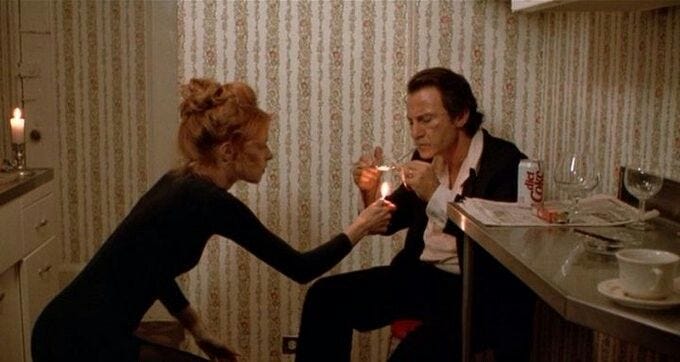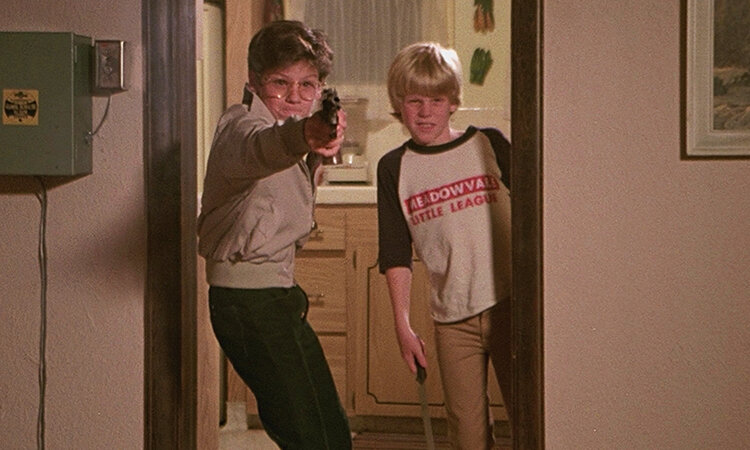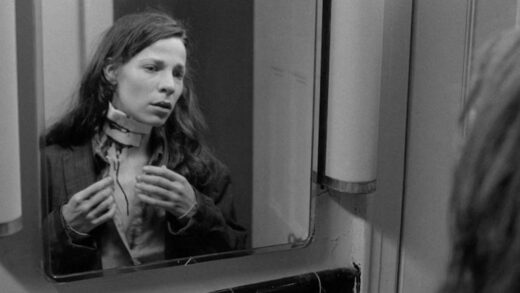Bad Lieutenant (1992)
![]()
Bad Lieutenant (1992) Directed by Abel Ferrara
Am I the only one who believes that Abel Ferrara’s rough narcotic nightmare antagonizes Scorsese’s films and Paul Schrader’s screenplays? First, the moral theology of the polemical Bad Lieutenant plays like a Schrader script but uncensored. Second, the degree of sour urban naturalism in Ferrara’s film feels like the unglamorous antithesis to the glamorous embrace of violence and drugs in Scorsese’s hard-boiled gangster lore. And third, the treatment of tragedy as a character study alludes to the hopeless, alienated characters of Schrader’s redemptive myths. Abel Ferrara’s Bad Lieutenant is notionally a reaction to the filmmaking of his two contemporary counterparts.
Harvey Keitel plays the immoral, self-destructive Bad Lieutenant, who patrols the seedier streets of Union Square not hunting for killers or apprehending drug dealers but looking for a spot to get high. The only touch with reality the benighted lieutenant has is the daily sports betting he engages in on the National League Championship Series. The rest of his time, when he is not attentive to baseball matches, is spent in a mind-numbing trance of sedation and pernicious indulgence from the narcotic concoction he gladly ingests. Another of his favorite pastimes is abusing his power as a police officer, doing illicit transactions with local drug peddlers and coercing two young women who did not have a driver’s license to watch him jerk off in the middle of the street. Let’s just say that the crooked cop became what he swore he would fight against. Harvey Keitel’s unethical lieutenant is a nasty and loathsome one, but the pain that Keitel explicitly grimaces is that of a man who is broken on the inside and wants to finish destroying himself on the outside. It’s a character we care about. Keitel’s gutsy performance is a testament to his unmatched acting prowess, but his character also testifies to the sheer audacity of Ferrara’s directorial genius.
Scorsese and Ferrara have so many artistic and personal commonalities that their virulent perceptions of NYC could coexist on the same screen – I can easily picture many of the characters from Bad Lieutenant in Scorsese’s Mean Streets or Taxi Driver, just as I can picture Travis Bickle prowling the sleazy confines of Ferrara’s films – both filmmakers are New Yorkers, of Catholic upbringing and Italian descent, and both are equally invested in utilizing the cinematic apparatus to document the most unsavory facets of the human condition. Yet even though the two directors unmistakably share many features that are identical in many respects, there is one contrast that makes them radically opposed, namely their aesthetic approach (and their objectives). While Scorsese’s masterworks depict a violent world with operatic kineticism, Ferrara’s show it with an unpleasant grimness. Scorsese helms his films as a master of narrative artistry, a genius of American entertainment; Ferrara conducts his films as an unabashed provocateur. Perhaps that’s why Ferrara’s films don’t get a warm reception at the mainstream awards and Scorsese’s do. Therein lies the enmity that Bad Lieutenant signifies when compared to the works of Schrader and Scorsese. Back then, in the early 1990s, Scorsese redefined the gangster genre with the exceptional Goodfellas saga, and Paul Schrader had directed the crime drama Light Sleeper. The funny thing is that both Bad Lieutenant and the other films aforementioned deal with drug abuse at certain points in the plot; however, Ferrara’s film is the only one with enough spunk to actually reveal the ugliness of the drug scene.
Zoë Lund co-wrote the screenplay for Bad Lieutenant with Abel Ferrara – although there is still debate as to who contributed the most to the story or who was the overall author of the script – a story that unfolds on an overwhelmingly physical plane and is so hard-hitting in its harrowing portrayal of self-destruction that the textures come across as personal, confidential intimations. Zoë Lund, an unapologetic crusader for recreational heroin use – who sadly died at a young age because of it – despite her overt espousal of heroin abuse, her script doesn’t look or feel like an outright exaltation of hard drug use. She is patently a woman with many underlying emotional problems, which she externalizes in Harvey Keitel’s character, it is well established from clinical standpoints that drug addicts never acknowledge their addiction, and if they do, they simply deny it. Personally, I believe that her apologia for drug consumption was nothing more than her heroin-stimulated grotesque ego speaking for her. Bad Lieutenant is – according to my hypothesis – her cry for help. If the theory is true that she had pretty much all the authorship of the script, then it’s more than evident that the main character is her, in a male variant.
In the movie, while the sleazeball, incorrigible lieutenant is caught up in his own hedonistic tragedy, a heinous rape occurs against a young nun inside a church. The lieutenant is meant to investigate the case and catch the culprits, but the goddamn sports bets are more consequential than anything else, and even his family is secondary to him. The emphasis Ferrara attaches to baseball games is a way of illustrating how Western societies privilege the ordinariness of entertainment, the triviality of sports, and neglect the spiritual transcendence of the human experience, and this lamentably is something that bogus politicians exploit to their advantage. Sports are -since the times of the Roman coliseum- a means to keep the masses ignorant, an easy method of obscurantism.
Like Schrader’s rhetoric, Zoë Lund and Ferrara’s prose bears a sublime soteriology. Our beloved and abhorred rotten lieutenant seeks salvation through repentance; the nun who was viciously assaulted by two heartless criminal brutes are pardoned by her through spiritual prayer. But Christian philosophizing has no room in the manifestly secular realm of Ferrara, so the fate of a sinner up to the standard of the debauched lieutenant has no mercy, only one condemnation: Death. The ultimate irony is that the devastated lieutenant in the very last minutes of the movie forgives the sexual abusers who snatched the maidenhood of an innocent nun, he is now a bona fide Christian, he just forgot to first forgive himself. What a tragedy.






